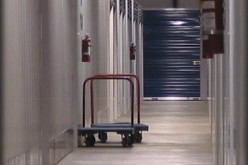There’s more opportunity, yes, but also more friction, more noise, more decision points you didn’t even know existed. You’re not just trying to find a place to live. You’re figuring out how to live differently, how to belong in a place that moves before you’re ready.
And it starts long before you pack a single box. If you’re planning that move, here’s what you need to keep top of mind, beyond rent and zip code.
Test the Neighborhood Like You’re Already Living There
Cities are a patchwork of micro-ecosystems. One block might feel electric and communal; the next might feel cold, anonymous. Your job isn’t to “pick a city,” it’s to find a corner of it that fits your rhythm. That means you’ve got to test-drive the neighborhood before relocating.
Walk it at night, visit it during rush hour, chat up people outside the corner store. Is the coffee shop full of laptops or loud conversations? Do you feel safe, seen, anonymous, and energized?
These questions matter more than square footage. Don’t just scroll listings. Go feel it in real time.
Build a Budget That Sees the Full Picture
Everyone underestimates how expensive a big city really is until they’re standing in a grocery aisle trying to justify $7 strawberries. Rent is obvious. But the dozens of other costs? Not so much.
You’ll deal with parking permits, elevated utilities, new insurance rules, transit passes, and delivery markups that don’t exist where you’re from. That’s why it’s crucial to watch for unexpected relocation costs before you commit.
Build a spreadsheet with real numbers: your future rent, your commute fare, your moving expenses, and your storage if things go sideways. That way, you’re not shocked when the city bills you in ways you didn’t see coming.
Logistics Aren’t Just for Boxes
You might think you’re just packing boxes, but in a city, the choreography starts long before the tape rolls out. Many apartment buildings run on strict moving schedules, where access codes, elevator reservations, and narrow time windows are the norm—not the exception.
Miss one and you’re rescheduling with a truck full of furniture. Without a solid timeline, you could rack up fees or burn a day waiting for clearance you assumed you didn’t need.
That’s why it’s smarter to map your move across two months, pacing each piece so the pressure doesn’t detonate all at once.
Make the City Life Feel Less Like a Blur
No one tells you this, but one of the hardest parts of landing in a city is the social piece. In a smaller town, connections happen through rhythm—school, church, bar, grocery store.
In a city, you have to engineer rhythm until it builds on its own. The best move? Pick a few places, such as the same grocery store, same coffee shop, same walking route, and commit to showing up.
Routines create familiarity, and familiarity breeds community. It’s why consistency matters. If you’re feeling isolated, try to find local events and meetups where other people are new too. They’re everywhere, it’s just not always obvious.
Your Feet Will Shape Your Days
In most small towns, driving is second nature. But in cities, your feet matter more than your car. The shape of your day will often be determined by what you can reach in 10 minutes on foot.
You’re going to walk more than you think, probably more than you ever have. That’s why it matters to evaluate walkability. Don’t just check for a nearby grocery store.
Think about sidewalks, traffic patterns, safe night lighting, access to transit hubs, and what it feels like to move through the area on a rainy day. Your energy will depend on this.
Education Can Unlock the Gridlock
Let’s not pretend the city job market is easy. Even with more openings, there’s more competition—and less patience. Hiring managers expect you to come equipped. So if you’re moving to the city with big career goals in mind, stack the odds in your favor.
One powerful move? Get your degree while you work. A bachelor of science in computer science can help you build skills in IT, programming, and theoretical fundamentals while giving you a signal boost in technical roles.
The best part? Online programs let you do this while working full time, so you don’t have to pause life to level up.
Process the Internal Shift, Because It’s Big
Here’s what no one says out loud: You might feel weird, sad, or even lost for a while. That’s not a failure. That’s the shift. Going from a tight-knit community where everyone knows your name to a place where no one does can feel like disappearing.
You’ll question your decisions. You’ll get homesick. And that’s okay. It helps to name what’s happening, that relocation is stirring emotional stress.
If you expect the inner storm, it won’t hit quite as hard. Give yourself permission to not love it right away. Big cities are like new relationships, hey take time to unfold.
Moving to a big city isn’t just a change of scenery, it’s a full-system reboot. Everything familiar shrinks into memory, and everything unknown demands your attention. But if you walk in with real expectations, tuned instincts, and a steady pulse, you’ll give yourself the best chance to thrive.
You’ll get to build a new version of life, one that feels big enough to hold all your ambition, and still small enough to feel like home. And when it finally clicks? You’ll know it wasn’t the skyline that made the difference, it was you.
Image Credit: small town to big city by envato.com
end of post … please share it!
end of post idea for home improvement
view and analyze home improvement ideas at our LetsRenovate center
Helpful article? Leave us a quick comment below.
And please give this article a rating and/or share it within your social networks.









